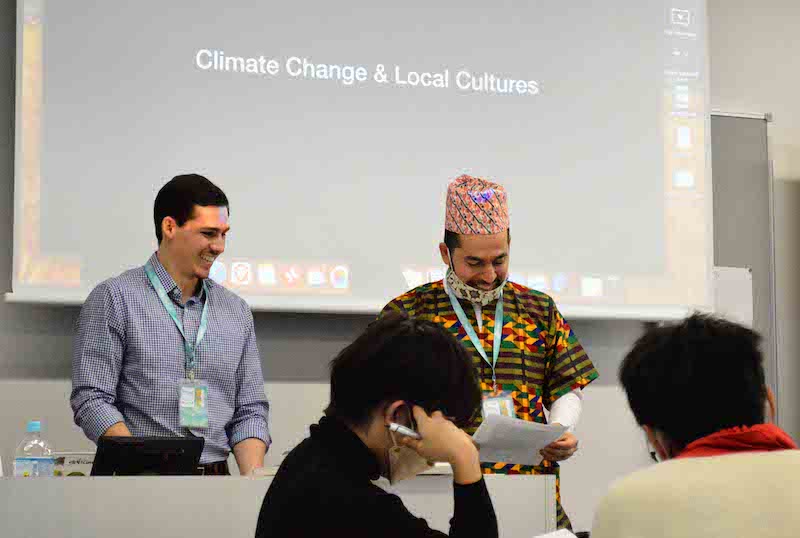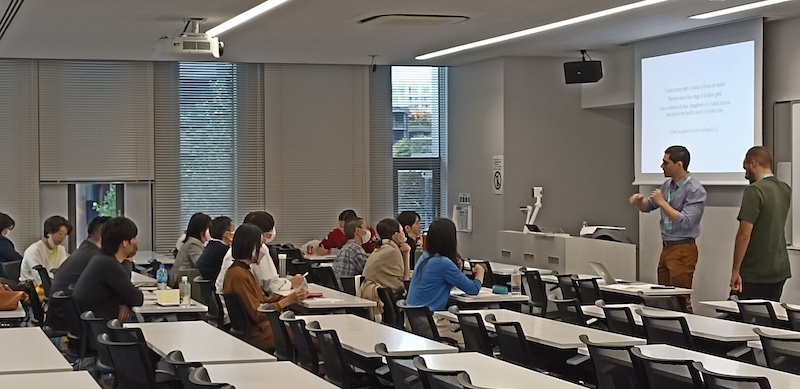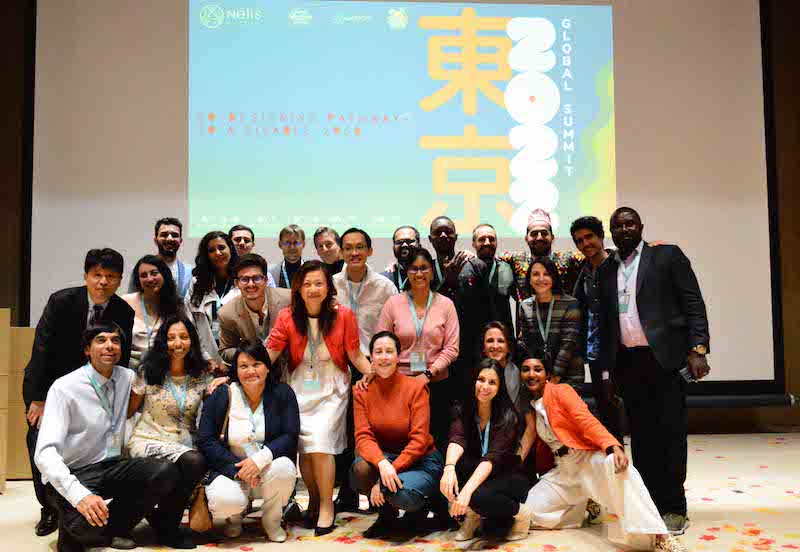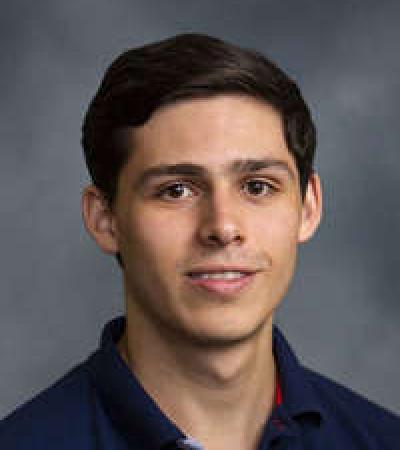NELIS Global Summit 2022; Tokyo, Japan
Kellogg Institute Conference Travel Grants
Title of Presentation: “To Excavate or to Extract: Rocks, Memory, and Environmental Politics in Pablo Neruda’s ‘Alturas de Macchu Picchu’”
Conference: NELIS Global Summit 2022 in Tokyo, Japan
November 1 – November 6, 2022
Conference Report



On November 5, 2022, the final day of the NELIS Global Summit took place at Sophia University in Tokyo. This day allowed for dialogue between the student community, representatives from the 120 countries in which NELIS is present, and the 27 corporations that sponsor its work. During the day, ten workshops were held to discuss and raise questions about sustainable development strategies and policies. Each workshop focused on food production, circular economy, veganism, deforestation, sustainable design, and cultural sustainability.
The workshop I co-led with Frantz Dhers, CEO of Originals, focused on cultural sustainability and was titled "Local Cultures, Sustainability and Climate Change." We organized the workshop around three main objectives that we distributed over three blocks. The three objectives were:
- To understand that the conceptual division between culture and nature can be challenged and amended.
- Understand how our cultural values determine what we think and do about sustainable development.
- Consider incorporating local cultural knowledge notions in the daily praxis.
All attendees received a guide with questions to encourage discussion in each workshop block. These questions were answered individually and discussed with the group.
To fulfill the first objective of the session, I presented my lecture entitled "Neruda's Modern and Utopian Visions on the Relation between Culture and Nature: A Commentary on 'Alturas de Machu Pichu.'" This lecture summarized the progress of my research entitled "To Excavate or to Extract: Rocks, Memory, and the Environment in Pablo Neruda's "Alturas de Macchu Picchu." Through this lecture, I presented how poetic language symbolizes the modern separation between humanity and nature. However, Neruda's poetic language can also symbolize a harmonious relationship between man and his environment for economic and productive purposes. Finally, through my analysis, I raised the arbitrariness of the nature/culture conceptual division. This arbitrariness allowed us to contemplate other ways of thinking about the relationship between humans and the environment mediated by our need for consumption.
To fulfill the second objective of our session, Frantz Dhers presented a video in which he summarized the cultural aspects of the peasant populations of the Pyrenees region. These populations use their inherited knowledge to benefit their fishing, harvesting, and food-gathering activities. Finally, to meet the third objective, Dhers presented another video in which he defined the relationship between the cultural aspects of today's economies and climate change. Next, I presented the case of the Yasuní reserve in Ecuador and the disputes that arose during the government of President Rafael Correa. The Yasuní reserve also holds many oil reserves whose extraction puts the region's biodiversity at risk. Dhers' video and the case presented gave way to a discussion on the definitions of culture and economic value.
The results of my participation in this event can be summarized, on the one hand, in the development of my research on the use of poetic language concerning environmental problems. Participating in this event has allowed me to write and detail the manuscript "To Excavate or to Extract: Rocks, Memory, and the Environment in Pablo Neruda's "Alturas de Macchu Picchu" to turn it into an academic population. Likewise, this event has allowed me to develop the third chapter of my dissertation, in which I analyze Neruda's poem. On the other hand, my participation in this session and the event allowed me to establish contact with an interdisciplinary environment. My research advances could reach people who work directly with developing sustainable policies and strategies. In this way, my participation fostered the transmission of knowledge from an academic environment to a corporate setting.






